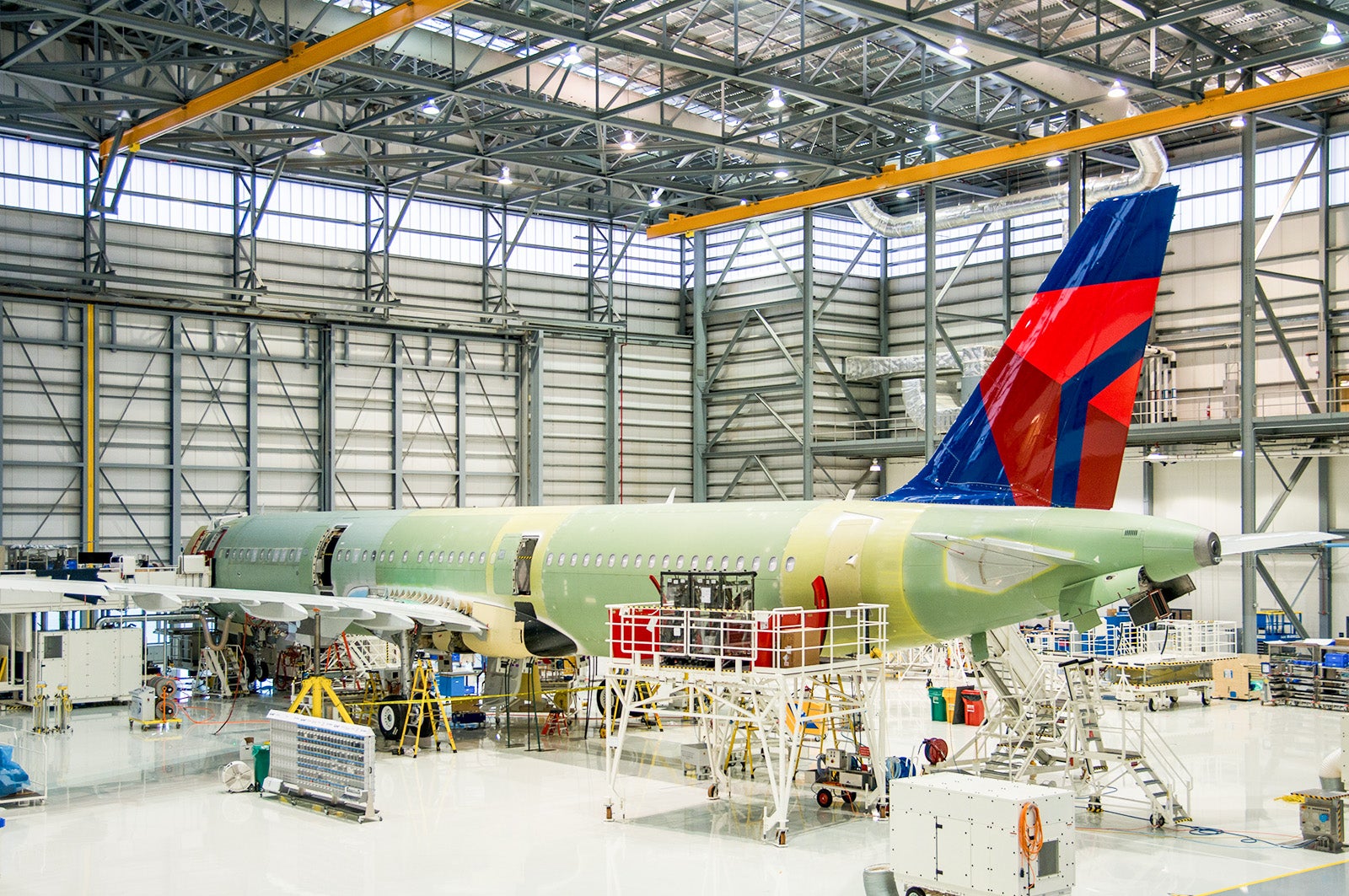Somehow, since the Airbus assembly plant in Mobile, Alabama, opened in 2015, nearly everything seems to have gone right.
The plant makes two popular aircraft: the A220 regional jet and A320 family jets including the A321, currently the airline industry’s “it plane.” At chief competitor Boeing, a once-vaunted, 106-year-old company, has been temporarily overwhelmed by a series of bad decisions. Among them was an effort to impose tariffs on Canadian-made aircraft, which pushed Airbus into acquiring 75% of Bombardier and moving some A220 manufacturing from Canada to Mobile. The Mobile plant got through the pandemic without laying anybody off — and now, aircraft are in short supply throughout the world.
In May, Airbus said it will add 1,000 jobs in Mobile, enabling the addition of a second assembly line for A320 family aircraft — in addition to the existing lines for the A220 and the A320. Since May, a few hundred jobs have been added, bringing current employment to about 1,500; the target is 2,500 jobs by 2027.
“That’s not bad for a place that wasn’t building airplanes seven years ago,” said Daryl Taylor, vice president and general manager of the Mobile plant since its opening. About 75% of employees represent local hires. Airbus has invested about $1 billion in Mobile so far.
Last week came one more Mobile achievement. On Thursday, the plant delivered its 100th aircraft to Delta Air Lines, a key customer. The plane was an A321neo (new engine option) with a Pratt & Whitney engine. U.S. airlines often say they are “upgauging,” which generally means they are replacing smaller narrow-bodies with higher-capacity A321s.
Configured for Frontier Airlines, which unveiled its first A321neo two weeks ago at a ceremony in Tampa, the A321 can carry 240 passengers, but Delta says it will fly the aircraft with 194 passengers in three classes. Delta uses A321neos primarily for transcontinental flying.
The 100 aircraft delivered to Delta from Mobile have included 88 from the A320 family, while 12 have been A220s.
Delta is based in Atlanta, just 300 miles away. “What they like is being able to come to Mobile and pick up both types of aircraft and make their life easy,” Taylor said.
Taylor said that one day, all Airbus narrow-body deliveries to U.S. carriers “will be from Mobile, and so we are building capacity,” but for now, demand “has outpaced our ability in Mobile, so there are some deliveries out of Europe.”
Sign up for our daily newsletter
More on Delta and its Airbus A220s:
Last week, when asked on CNBC’s Squawk Box about the global aircraft shortage, a result of supply chain issues, American Airlines CEO Robert Isom said: “Boeing and Airbus have been good partners. We need them to be great. We really do. We depend on them for our livelihood.”
“They’ve got to be on time, in terms of when they deliver aircraft,” he added. “You’ve got to build an enterprise to make sure that it services what you committed to. I know they want to do it. They’ve got to catch up, just like we’ve all had to do on the pandemic.”
To date, Mobile has delivered about 340 aircraft, including about 300 from the A320 family. Airbus has said that globally, by 2025, it expects monthly production of 75 A320 family aircraft and 14 A220 family aircraft. A similar ratio is expected in Mobile.
Mobile delivered its first aircraft, an A321,to JetBlue in April 2016. Customers have included American, Allegiant, Delta, Frontier, Hawaiian and JetBlue as well as leasing companies. The first delivery of an A220 was to Delta in 2019.
The future could include building a military tanker, the LMXT, a version of the Airbus A330 that would be produced in partnership with Lockheed Martin. The two companies have said that if the Air Force chooses the aircraft over one proposed by Boeing, they would assemble it in Mobile and fly it to a Lockheed facility in Marietta, Georgia, for military refueling and electronic equipment.
Growth has been steady, except for a pause in the spring of 2020, when COVID-19 first appeared. That April, May and June, the plant didn’t make deliveries, but “there were no months when we didn’t produce aircraft,” Taylor said. During the slow months, Airbus did not lay off any permanent workers and continued to build A220 production facilities. By the end of 2020, every customer had resumed deliveries.
Scott Hamilton, managing director of airline consultant Leeham Partners, said: “The creation of the Mobile final assembly line, and with it a growing aerospace cluster there, obviously creates jobs and industry. This is a positive for U.S. aerospace.”
But Hamilton noted that Boeing retains a solid U.S. presence: Alaska, Southwest and United airlines remain entirely or predominantly Boeing customers, and Delta said in July that it will add 100 Boeing 737 MAX aircraft to its fleet, with options for 30 more.
Boeing triggered Mobile’s entry into the A220 business, Hamilton recalled.
“The Boeing trade complaint against Bombardier prompted not only the sale of the C Series program to Airbus but the creation of an A220 (final assembly line) in Mobile and Delta’s pledge to take delivery of the A220 from Mobile once it was up and running,” he said. “Boeing completely miscalculated the impact of its trade complaint. Now, it competes in the 150-seat sector against a strong Airbus rather than a weak Bombardier.”




















Discussion about this post